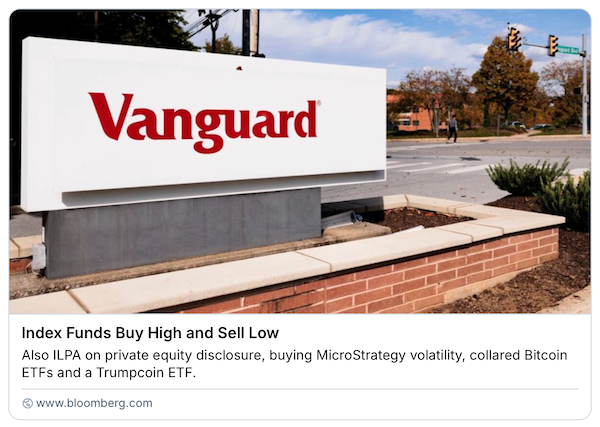5 big analyst AI moves: Apple lifted to Buy, AI chip bets reassessed
Overseas investors have never been more bullish on U.S. equities than they are today.
“Over the past three months, foreigners purchased US equities at a record pace of $76.5B,” reports Yardeni Research (via Daily Chartbook).
The firm continues,
“One note of caution: Their buying has a record of being a contrary indicator. They tend to be big buyers right before bear markets.”
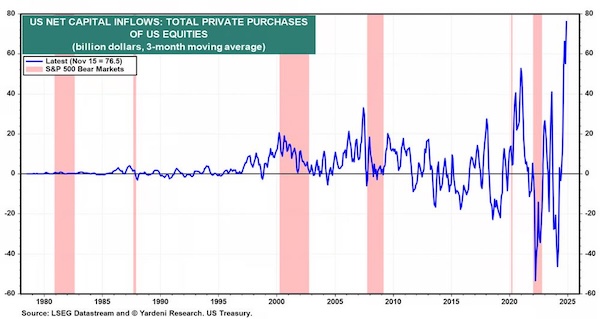
Meanwhile, corporate insiders have never been more bearish. Among, “publicly traded corporations that so far this year have recorded any insider transactions from officers or directors,” reports Mark Hulbert,
“There’s been net buying since the beginning of the year at just 12.1% of those companies.”
Moreover, aside from consumer staples, “Insiders in the other 10 sectors are all negative. Insiders are negative on both growth and value. Additionally, insiders are pessimistic on small-cap, mid- and large-cap firms,” insider expert Nejat Seyhun tells Hulbert.
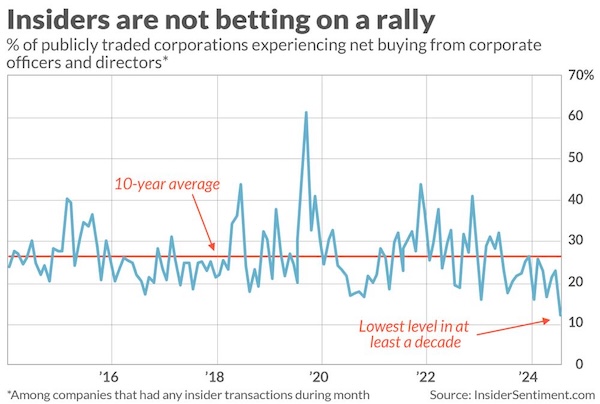
This extreme bearishness on the part of America’s top executives may be due in part to the fact that stock prices are extremely expensive at current levels. In fact, as Simon White notes,
“The market, based on a broad swathe of measures, has never been as overvalued as it is today.”
If the price you pay determines your rate of return, then this suggests long-term returns from today’s prices could be very poor relative to what investors have come to expect from S&P 500 in recent years.
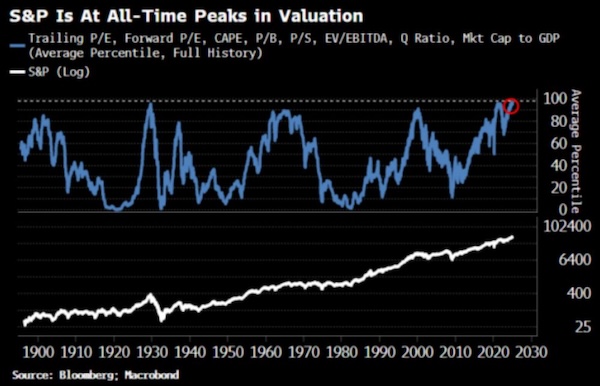
It may also be because macro trends are not supportive of the sort of earnings gains currently priced into the broad stock market.
“Historically, weakness in the capacity utilization/dollar ratio has led to weaker profit growth.
Since mid-2024, this ratio has been declining and is now showing a substantial weakness coming in the first half of 2025,” writes Jim Paulsen.
With analysts expecting strong earnings growth in 2025, this could lead to disappointment in the quarters ahead.
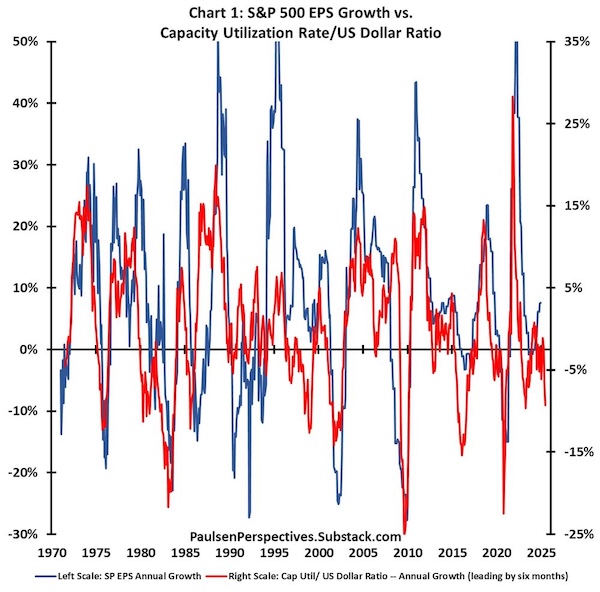
Passive investors should be aware that they are systematically taking the other side of this bearish corporate insider trading activity. This is just one of several forms of index composition changes that can be costly over time.
A recent research paper reports (via Matt Levine),
“This rebalancing approach successfully captures the market as it evolves, but effectively buys at high prices and sells at low prices.
A long-short portfolio capturing the intensive margin rebalancing trades of index funds has an average alpha of -3% to -4% per year.”
And to think investors justify the decision to go passive largely by pointing to low transaction costs.
